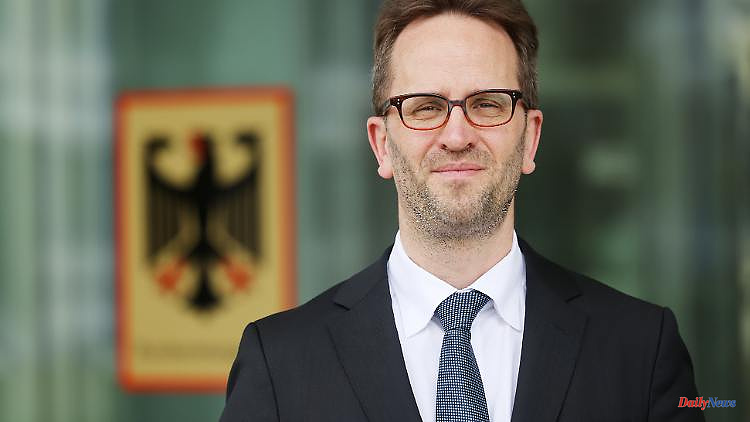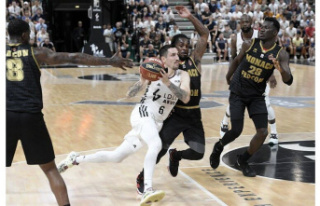Network agency boss Klaus Müller considers the reduction of Nord Stream 1 to be dramatic and calls on consumers to save energy. He also sees the industry as having a responsibility. However, he is in no hurry to declare the third gas emergency level.
The Federal Network Agency fears that Germany will have insufficient gas supplies in winter due to declining supplies from Russia. "As of today, we have a problem," said network agency boss Klaus Müller on the sidelines of an energy conference in Essen. He referred to the already reduced deliveries from Russia and the upcoming maintenance of the Baltic Sea pipeline Nord Stream 1. "The reduction of Nord Stream 1 by 60 percent is dramatic." He does not know what the status will be after the maintenance.
Müller called on consumers to save energy. Industry can also make a major contribution. However, Müller rejected calls for the highest gas warning level to be called out. He sees no rush for this, he told Bayerischer Rundfunk. Everything will be done to avoid having to call out the third stage of the gas emergency plan. Because of the reduction in gas supplies from Russia, the Federal Network Agency and the Federal Ministry of Economics had developed the three-stage emergency plan.
Germany is currently in phase 1. The Federal Ministry of Economics must decide whether and when Germany will enter the second phase. The situation is being continuously reviewed, said two people familiar with the plans. Müller hopes for relief through short-term emergency measures that the network agency wants to work out together with the industry. His agency's plans for a gas auction model will allow the industry to sell gas it doesn't need.
The excess quantities could then go into storage or be used to prevent a gas emergency. Offers to provide gas quantities could be made via platforms of the gas trader Trading Hub Europe (THE). The cheapest offers would then be accepted, as in an auction. "It is up to the industrial customers to create the necessary contractual conditions and to prepare the submission of bids internally with their suppliers," says a paper from the authority. Legislative changes are not necessary. Implementation is possible this summer.
In addition to the gas auction model, Federal Economics Minister Robert Habeck also announced at the weekend as part of the emergency measures that he wanted to use more coal-fired power plants as a substitute for gas-fired power generation. The parliamentary manager of the FDP, Johannes Vogel, also called for an extension of the operating times of the three remaining nuclear power plants, "at least for this winter". Green party leader Britta Haßelmann gave the a refusal.
"In my view, we don't need mock debates about nuclear energy or a nuclear renaissance at this point in time." The Federal Ministry of Economics and the Federal Ministry for the Environment came to the conclusion in a test report at the beginning of March that continued operation of the nuclear power plants was not recommended. This is justified, among other things, with cost and safety aspects, but also with the fact that the fuel elements in the plants are largely used up with a view to the planned end of operation.
The gas industry in Germany currently sees no reason to declare the highest alert level for the supply. "The point doesn't make sense," said the head of the Future Gas Association, Timm Kehler, on the fringes of the energy conference "E-world energy












